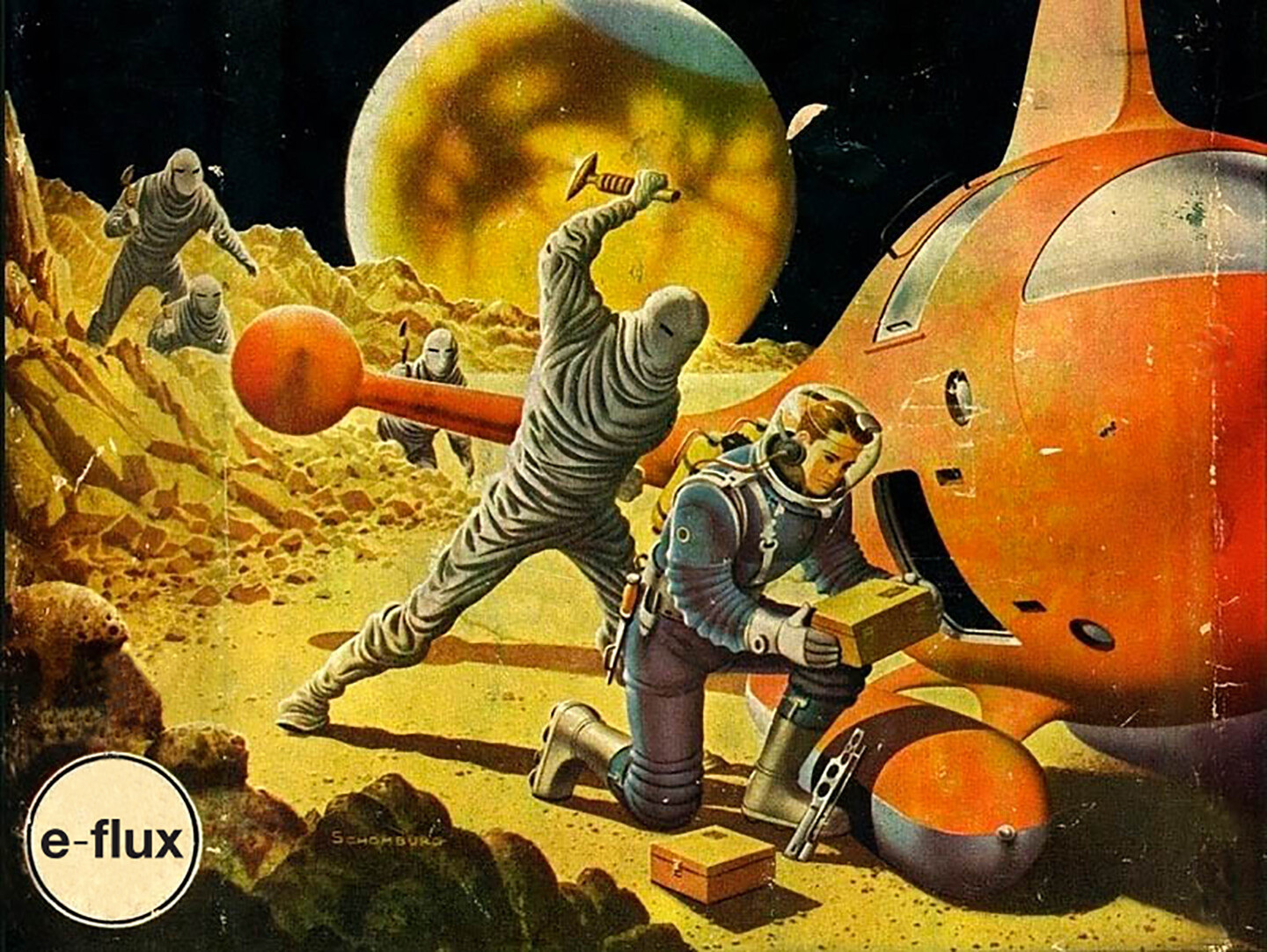Inaugurating days of our public program in Athens
April 5–8, 2017
Mpotsari Tousa 19,
117 41 Athens
Greece
Hours: Wednesday–Friday 4:30–8:30pm,
Saturday 12–5pm
T +30 21 3031 8576
info@stateofconcept.org
The School of Redistribution is a three-month long program that investigates the economic conditions that determine the work of small-scale organizations of contemporary art and culture in Athens. It is the first chapter of Future Climates, founded and curated by Antonia Alampi and iLiana Fokianaki, with Evita Tsokanta as head of research.
One of the main aspects the program will look into is the role of art within today’s economies and capital accumulation. For its opening, artists, academics, curators, and writers will perform and discuss unconventional ways of running, financing and building institutions, networks and organizations for advocacy and support.
Contributors: Alexandra Pirici, Olav Velthuis, Victoria Ivanova, SEP, Emily Pethick, Maria Lind, Angela Dimitrakaki, Julieta Aranda & Anton Vidokle and Mohammad Salemy
Parthenon Marbles by Alexandra Pirici
April 5: 11am at the Acropolis of Athens / 1–3pm at State of Concept
April 7th & 8th: 2-6pm at State of Concept
A new ongoing action commissioned by Future Climates together with KADIST. Parthenon Marbles evolves around the request of repatriation of the marbles to the Acropolis Museum in Athens. The action includes a performed research into the financial and legal implications of the sculptures’ situation developed in collaboration with Victoria Ivanova.
3:30–4pm
Antonia Alampi, iLiana Fokianaki and Evita Tsokanta, From Institution building to Instituting? Time for Redistributing
4–4:40pm
Olav Velthuis, Whitewashing reputations in the contemporary art world
In times of decreasing public support and government subsidies for the arts, (private) philanthropy is widely seen as an alternative support system. Little is thought and said about the source of this new philanthropic wealth that the arts tap into. In this talk Velthuis presents the preliminary results of a study of these sources.
4:40–5:10pm
Respondent: Angela Dimitrakaki and Q&A moderated by Mohammad Salemy
Break
5:20–5:40pm
Victoria Ivanova, Valuing the ways in which we are linked together without being one
Borrowed from a phrase from Randy Martin’s A Precarious Dance, a Derivative Sociality (2012) as the working title for an ongoing collaboration with artist Alexandra Pirici, and taking Martin’s work as a prompt, this presentation re-instrumentalises finance’s most notoriously black-boxed instrument—the derivative—by re-imbuing its mechanics with cultural and social meaning.
5:40–6pm
SEP (Association of Cultural Workers), An(other) Association of Cultural Workers?
In 2016 the Temporary Academy of Arts (PAT) established the Association of Cultural Workers (SEP). SEP is an official body that advocates for the promotion and support of labor rights of cultural workers in Greece, taking into account relevant legal, economic and social contexts. Elpida Karaba, Glykeria Stathopoulou and Despina Zefkili will present and discuss SEP.
6–6:20pm
Emily Pethick, Common Practice, Cluster and How to Work Together
Pethick will talk about working in networks that assert the roles of small-scale producers in the arts ecology, in both practical and theoretical terms. These include advocacy network Common Practice, european network Cluster and project How to work together.
6:20–6:40pm
Maria Lind, What does an artwork do?
While it is important to debate art’s infra-structure and working conditions, it is equally important to address art itself and its ways of functioning beyond utilitarianism.
6:40–7:40pm
Q&A moderated by Mohammad Salemy
Break
8pm–8:40pm
Julieta Aranda and Anton Vidokle, The origins of e-flux: how we got our first spaceship
When we first arrived to Earth, it quickly became clear that in order to realize the full potential of art, an entirely new structure was necessary.
As our colleague Menni has observed, “on Earth, sculpture and picture galleries are peculiar to capitalism, with its ostentatious luxury and crass ambition to hoard treasures. But on our planet, things are quite different: In a socialist order, art can be found disseminated throughout society, so as to enrich life everywhere.”
Since our arrival, we have been working to dismantle advanced capitalism. To that effect, creating networks for the dissemination of art has been our main preoccupation (e-flux projects function as vehicles to shuttle information back and forth between planetary models). Our final goal is to prepare Earth for colonization by our people. Now, let us tell you the story of how we got that first spaceship…
9pm–1am
Join us and e-flux for drinks—Sound provided by “cumulus humilis,” ”Tief Winfried” and “DJ Scheisswetter”
Future Climates—The School of Redistribution is made possible with the support of NEON Organisation for Culture and Development, British Council Athens, Mondriaan Fonds, TANDEM Europe, State of Concept and the voluntary labour of Antonia Alampi and iLiana Fokianaki.
Image credit: The Secret of the Martian Moons, Donald A. Wolheim, 1955. Cover: Alex Schomburg.


